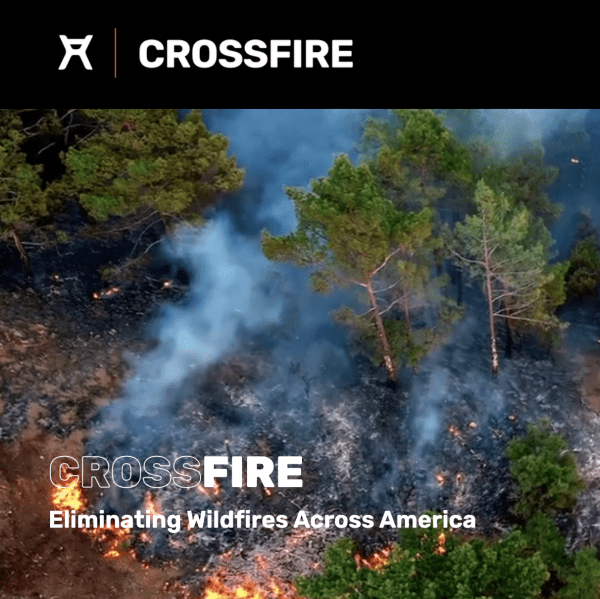UMD Team Featuring GEOG Scientist Among Semifinalists in Global XPRIZE Wildfire Challenge
Experts from several disciplines are working together to use an advanced drone-based system to detect and extinguish wildfires within minutes.
A multidisciplinary team, including Associate Research Professor Evan Ellicott, has been selected as a semifinalist in the international XPRIZE Wildfire competition.
“The XPRIZE challenge is exciting because it draws together expertise across a variety of disciplines to address a real problem society faces: wildfires," Ellicott said. "We are pushing the boundaries of technology for a solution."
Led by the Department of Fire Protection Engineering (FPE), team "Crossfire” is one of 29 global teams invited to participate in the semifinals, which will take place in March and October 2025. The group brings together strong expertise in fire protection engineering, robotics, autonomous systems, and vertical-flight systems.
Crossfire has advanced in a challenge to develop a system that can locate and suppress a wildfire in an area spanning a thousand square kilometers with challenging wind and terrain conditions in just under 10 minutes. Ellicott is leading the sensor and fire detection design.
The team’s solution is based on multiple drones, including a large, long-endurance Unmanned Aerial Vehicle (UAV) and small multicopter UAVs. It uses standard communication and navigation technologies, dual fire detection technologies (thermal and optical cameras), and enhanced water-based fire suppression (water containers featuring an innovative rupture and dispersion mechanism), all integrated into a System of Systems using optimization methods, artificial intelligence and machine learning algorithms.
Through participation in the XPRIZE competition, the group is part of a larger effort to find new ways to detect, localize and suppress wildfires.
Ellicott has recently joined NASA’s FireSense program, which also includes GEOG Professor and Chair Tatiana Loboda and Assistant Research Professor Adrián Pascual. The program focuses on challenges in U.S. wildland fire management.
This article is based on a news story published by the Department of Fire Protection Engineering.
Image: Crossfire homepage screenshot
Published on Thu, 11/07/2024 - 02:57


